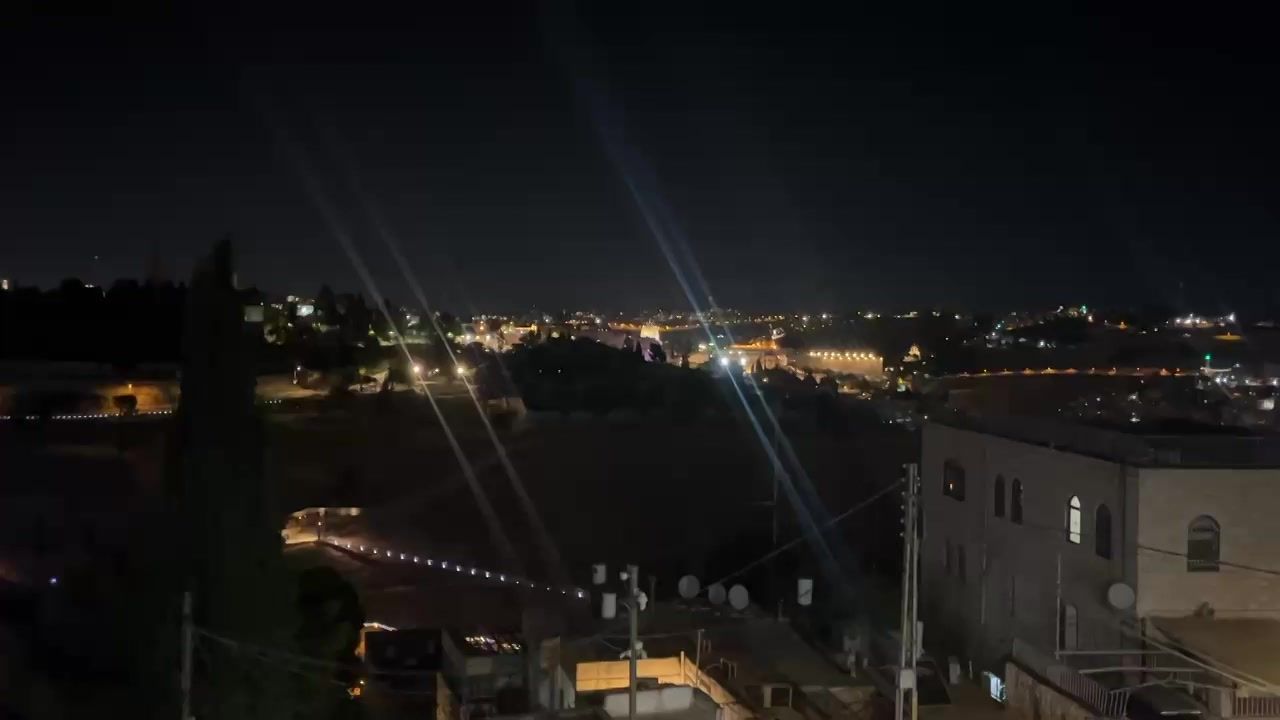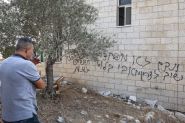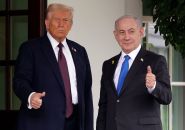- Home
- Middle East
- Israel Launches Massive Strikes on Iran, Targeting Nuclear Sites and Top Officials

©LUANA SARMINI-BUONACCORSI/AFPTV/AFP
Israel launched a series of coordinated strikes against Iran, targeting nuclear facilities, missile bases and high-ranking military personnel. The strikes began in the early hours of Friday.
According to Iranian and international media reports, explosions were heard across several Iranian cities, including Tehran, Natanz, Isfahan and Mashhad. Iran’s state television reported that residential areas in the capital were also hit, and at least some civilian casualties have been confirmed.
Iran’s state television also reported that “three military sites in the East Azerbaijan province were attacked by the Zionist regime,” quoting the province’s crisis management department.
The Israeli military confirmed it had carried out “dozens of strikes” aimed at dismantling Iran’s nuclear infrastructure and degrading its ballistic missile capabilities. An Israel army spokesperson said the operation had entered its “first phase” and would continue over several days.
“Israel will not allow a regime whose declared objective is our destruction to possess weapons of mass destruction,” the army said in a statement, adding that Iran’s nuclear advancements had reached a “point of no return.”
Key Iranian Figures Reportedly Killed
Iranian state media has confirmed the deaths of several prominent figures, including Gen. Hossein Salami, the commander of the Islamic Revolutionary Guard Corps (IRGC) along with Fereydoun Abbasi and Mohammad Mehdi Tehranchi, two senior nuclear scientists closely associated with Iran’s uranium enrichment program.
A number of unnamed high-ranking officers in Iran’s General Staff were also reportedly killed, though official Iranian government confirmation remains limited.
Satellite imagery and videos circulating on social media show smoke rising from areas said to include the IRGC’s headquarters on Pirouzi Street in eastern Tehran. Firefighters and ambulances were seen responding at the scene.
Covert Operations by Mossad
In addition to airstrikes, the Mossad reportedly carried out sabotage operations deep inside Iranian territory. Citing diplomatic sources, Israeli and American media reported that these covert missions targeted missile storage facilities and air defense systems, aiming to weaken Iran’s ability to respond to air assaults.
State of Emergency in Israel
In response to potential retaliation, Israel declared a national state of emergency. Defense Minister Israel Katz warned that missile and drone attacks were expected from Iran or its regional allies “in the immediate future.” Air raid sirens were heard overnight in Jerusalem and other cities, while emergency alerts were sent to residents’ phones.
Schools, public gatherings and non-essential businesses have been suspended nationwide. Israel has also closed its airspace as a precaution.
Flight tracking services confirmed that Tehran’s main international airport suspended all flights, while air traffic to Tel Aviv was diverted or grounded.
US Response: Caution and Distance
While the United States was informed in advance of the Israeli operation, officials in Washington were quick to stress that the strikes were unilateral. Secretary of State Marco Rubio stated, “We are not involved in strikes against Iran. Our top priority remains the safety of American personnel and interests.”
President Donald Trump, who had publicly voiced opposition to a potential military strike on Iran earlier in the day, emphasized that diplomacy was still a viable path and that the US would not support any offensive actions.
Despite this, the US has begun repositioning forces in the region, reportedly withdrawing non-essential personnel and military families from bases in Iraq, Bahrain and Kuwait. Air defense systems have been bolstered in anticipation of Iranian retaliation.
The White House announced that Trump – who has yet to comment publicly on the major attack – would attend a National Security Council meeting Friday morning, in light of the Israeli strikes, which prompted fears of regional war.
This rare meeting of top security chiefs from across the US government would be held at 11 AM (3 PM GMT) in the White House Situation Room.
UN Nuclear Watchdog ‘Closely Monitoring’
The UN nuclear watchdog confirmed Friday that Israeli strikes were targeting an Iranian uranium enrichment site, saying it was “closely monitoring the deeply concerning situation.”
“The IAEA is closely monitoring the deeply concerning situation in Iran. Agency can confirm Natanz site among targets,” International Atomic Energy Agency head Rafael Grossi said in a post on the agency’s X feed, as the IAEA board of governors meets this week in Vienna.
“The agency is in contact with Iranian authorities regarding radiation levels. We are also in contact with our inspectors in the country,” he added.
Khamenei Warns Israel of ‘Bitter and Painful Fate’
Iranian supreme leader Ayatollah Ali Khamenei warned that Israel would suffer severe consequences.
“With this crime, the Zionist regime has set itself up for a bitter and painful fate and it will definitely receive it,” Khamenei said in a statement.
Nuclear Talks Face Uncertain Future
The attack comes just days before a sixth round of nuclear negotiations was scheduled between Iran, with US observers saying those talks are now almost certainly off the table.
Netanyahu acknowledged the diplomatic fallout but defended the timing: “With each passing day, we saw Iran rushing closer to the bomb. This was a narrow strategic window. We had no choice.”
Iran has consistently denied seeking nuclear weapons, maintaining that its program is for civilian energy purposes. The IAEA and US intelligence had not recently confirmed any definitive move toward weaponization.
Widespread Fallout Expected
The escalation has raised alarm across the international community. Analysts warn that the coming days may see direct Iranian retaliation.
Khamenei has not yet addressed the nation. However, various Iranian media outlets have vowed “a swift and decisive response.”
In Israel, military and civil defense forces are on high alert, with military units deployed across urban centers and border areas.
Read more



Comments